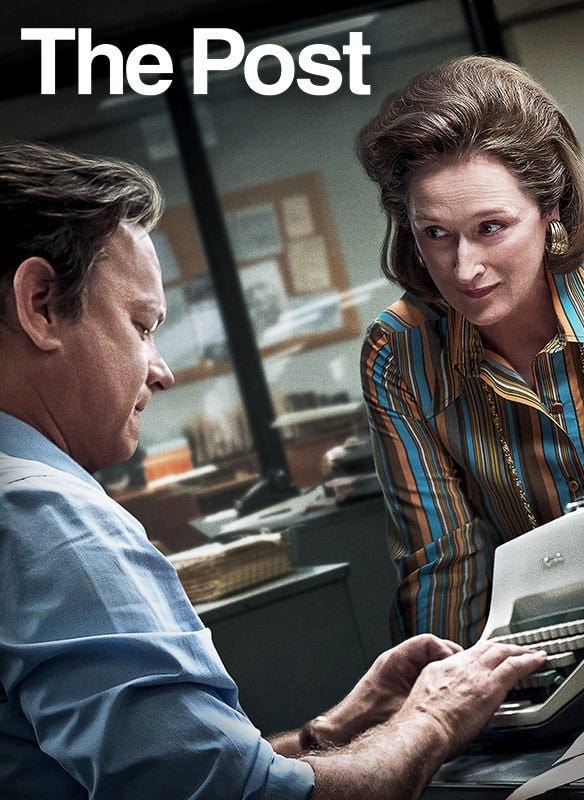'The Post' Tells Bradlee Sr. and Katherine Graham's Thrilling Story
A worthy successor to “All the President’s Men”
“The Post” poster. 20th Century Studios photo.
Steven Spielberg’s “The Post” is a well-made period film that provides historical insight into the current political climate of the conflict between the news media and the government.
The film, set in 1971, is about the “Pentagon Papers,” a 7,000-page study on the Vietnam War, commissioned by former Defense Secretary Bob McNamara (Bruce Greenwood). Daniel Ellsberg (Matthew Rhys), an analyst who worked on the study, photocopied the study and leaked it to The New York Times. Unfortunately for The Times, a federal judge ordered an injunction on the publication of the papers. Ben Bagdikian (Bob Odenkirk), a Washington Post assistant editor, knew Ellsberg during the war and suspected that it was Ellsberg who leaked the papers. He then tracked down Ellsberg and got the papers. But with the injunction, The Post risks legal and financial challenges from publishing the papers. This puts Katherine Graham (Merryl Streep), The Post’s owner and publisher; Ben Bradlee (Tom Hanks), the executive editor; and Graham’s advisors at odds against one another. The company was going public, and publishing the papers could jeopardize that. Graham has a decision to make: side with Bradlee, publish and risk the company's future (and potential jail time), or not publish and risk losing journalistic integrity.
This film achieves what it had set out to do: to inform the audience of how the situation went down and to illustrate the hard work of the journalists who made it possible. In contrast with “All the President’s Men,” a 1976 classic film about the Watergate scandal and The Post reporters who broke it, “The Post” felt a lot more authentic but also, at times, bland. There’s no “Deep Throat” or mysterious sources standing in a dark parking lot, but the thrill is still there. It is a well-made period piece, the lighting, the language, the music and the costumes are just right.
However, as a political thriller, it is not as thrilling as “All the President’s Men,” and started quite slowly. It got more serious and interesting near the end. The buildup towards it was done well, although it could have been better. I was disappointed that the courtroom scenes were really short, and it felt like a missed opportunity for a fair bit of thrilling sequences. Graham’s journey as the company’s female head, though, was inspiring. Her complex relationship with McNamara was also interesting to see. Unsurprisingly, everyone in this film was spectacular. The chemistry between Tom Hanks and Merryl Streep’s characters was real and believable. Bradley Whitford was amazing as Arthur Parsons, a composite character inspired by Graham’s advisors, the same goes for Bob Odenkirk as Bagdikian.
Great soundtrack by John Williams, as always. But it’s not really an integral part of the narrative.
The film ends right where “All the President’s Men” starts, the Watergate break-in. It is a worthy prequel to “All the President’s Men,” and I guarantee that fans of the 1976 classic will love “The Post” just like I do.
8.5/10




